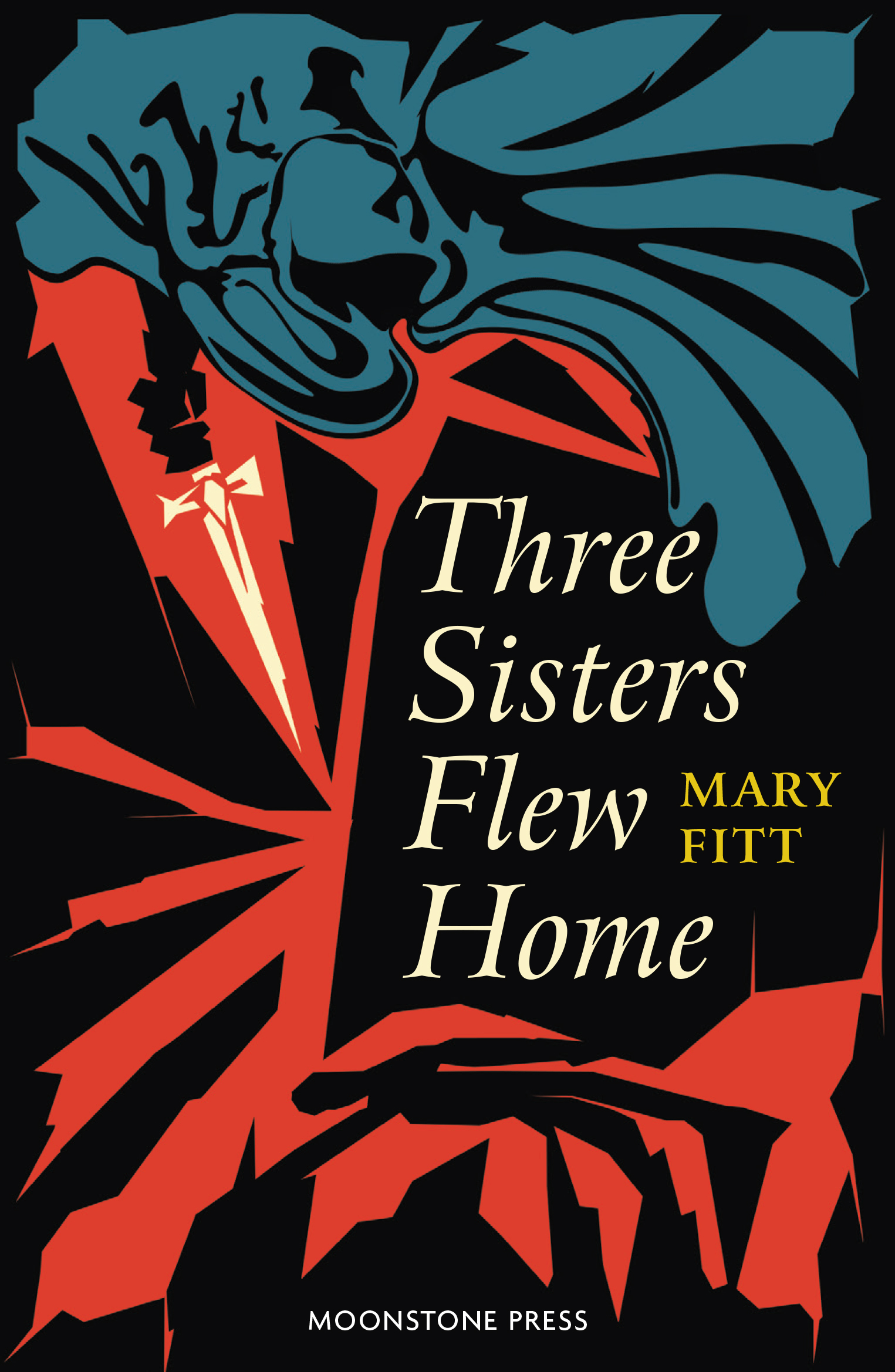Three Sisters Flew Home
‘You must admit I make a good murderer. Nobody thinks of me.’
Not every woman can collect her dethroned lovers and their wives into one room, but then Claribel was not ‘every woman’. Things happened at her parties and so one swallowed the latest bait and joined all the other poor fish. But having given her party, having collected her bevy of expectant friends, having presented three mysterious beauties, it was painfully bad tactics to make them play a murder game. All sorts of curious things were liable to happen when one let loose such a motley throng in a darkened house. So it was Claribel’s fault, and she had only herself to blame when things did happen.
A fairy tale with a sting in its tail.
£9.99
By Mary Fitt (pseudonym of Kathleen Freeman)
Introduction by Curtis Evans, vintage crime historian
First published in 1936 by Nicholson and Watson Ltd
Paperback
223pp
ISBN 9781899000586
eISBN 9781899000593
Available December 2022
Only logged in customers who have purchased this product may leave a review.
From the first, Claribel’s party went well.
She had chosen to begin it at the extraordinary time of a quarter to four in the afternoon; and this certainly meant twelve hours’ entertainment. But Claribel always said she liked too much of everything.
Her guests came. They came in time. They would not have done this for anybody but her. But they came to her dark house at the very time she told them to, because they knew that she had something to offer them, something surprising, delicious, worth while. When they had received her casual invitation, by telephone,
by note or word of mouth or even by wire, each one of them knew that this was the summons that must be accepted at all costs, for New Year’s Eve. If any of them had made a previous arrangement, this must be cancelled.
And yet, there were some of them who didn’t want to go… Perhaps these had been before, had seen other New Years in at Claribel’s parties. Perhaps one or two of them had done this more than once, and knew that, so long as Claribel chose, in her casual last-minute way, to invite them, they would do it again.
Oh yes, there were always a few ‘old friends’ in these annual gatherings. The question they asked themselves, as they came into her dimly lighted room, was, who of their number was not there this time?… But they came. For after all, there were always new friends too. More than that; there was always Expectancy: what are we here
for, what will she provide?
It would have been interesting to have seen the face, or even into the mind, of each person invited, as he stood, perhaps, with the telephone receiver in his hand, or the newly opened note or telegram. Some, no doubt, smiled naively, with pleasure, with ready acceptance. Others looked thoughtful, and took time to answer, although they knew their answer was predetermined. One, at least, looked haggard all of a sudden, and dark. Claribel’s ways of communication were carefully chosen, too: she knew full well when to use her voice, or her written word, and when to use an impersonal medium. Those who knew her well enough could have
told, simply by knowing how the invitation had been delivered, the status of each guest in Claribel’s mind.
At a quarter to four they were all assembling. Quite suddenly, the dark lane leading to Claribel’s door became full of sound and light, as car after car swung round the corner, startling the river swans, and crawled humming into line. Claribel’s husband was at the door, quietly welcoming; he helped the ladies out, and collected
their wraps and showed them where to go; he showed the men where to put their cars. By four o’clock he had them all upstairs for Claribel; and he was handing round the cups of tea which he seemed also to have poured out for them. At any rate, Claribel did nothing. She leaned against the chimney-breast at the side of the
immense hearth, and with a sweet smile on her lips, and a gleam in her eyes, surveyed the room.
It was a beautiful room, very long and low, with many-beamed ceiling. It glowed, richly and darkly, in the light of the pine logs, and there was a pleasant, not too heavy, scent that met one as one came up the steep, winding stairs. Claribel had had the luck to pick up this old house by the river, as she picked up everything, when she
wanted it, and at the price she wished to pay. None of her friends thought of grudging it to her; they sighed a little, maybe, when they first heard the news – but it was Claribel’s luck, belonging to her as truly as her eyes or her brain, and one realized that she did, in some obscure way, achieve what seemed to fall to her by an
absurd favouritism of fortune. To have done the same, one would have had to be Claribel: one doubts whether any of her circle would have wished just that.
At the back of the room Claribel’s Christmas tree still stood, waiting for the Epiphany, its candles partly burnt except where Gilbert had fixed new ones, and its green, silver and crimson balls each with a point of light, like the gleam in Claribel’s eyes.
She spoke softly, welcoming one and all, giving to each her hand, her gentlest voice, her smile. She was, at this point, conventionally dressed, in an afternoon frock of boyish cut, and she looked very charming – sophisticated and young.

Reviews
There are no reviews yet.